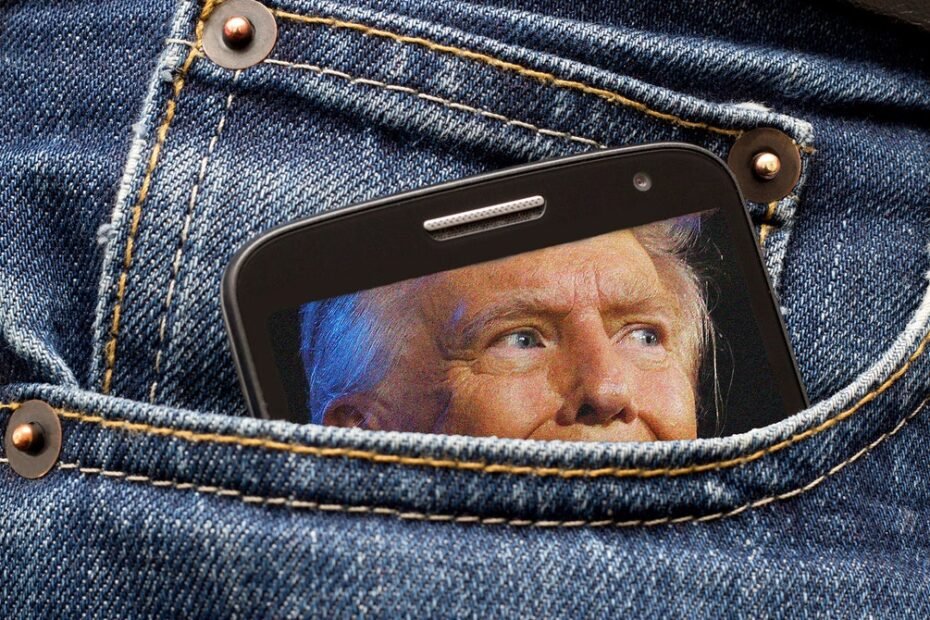Perhaps even as a gift to Musk, Trump has effectively returned to X over the past few weeks, leveraging the largest online megaphone he’s ever had. On Tuesday evening, Trump posted a link to his campaign’s page asking for volunteers. As of Wednesday afternoon, it’s pinned at the top of his account. This could be the mark of a desperate candidate, but it could still prove to be very effective.
If the polls are correct, this election will be incredibly close. Trump’s base will likely turn out like they did in 2016 and 2020. The challenge is convincing nonvoters to turn out and boost the former president’s numbers. Many of these unlikely voters are young men; men aged 18-24 vote in far fewer numbers than older generations. To find and persuade them, Trump has worked with tough-guy and dude-bro podcasters and influencers whose audiences tend to be the exact people the campaign is trying to reach. Instead of one volunteer with a clipboard getting maybe a few dozen or even a hundred people to register in a day, these guys precisely reach millions of the voters the campaign needs.
In 2008, Barack Obama’s campaign transformed how elections are fought and won with its massive field operation across the country. At the time, traditional methods like phone banking were revolutionary. Now, no one answers their phones. If you’ve been reading this newsletter, you know the Kamala Harris campaign has done plenty of similar work online to what we’re seeing from the Trump team and Obama’s ‘08 campaign. The main difference, really, is that they’ve also invested in relational organizing, and are betting on the fact that a combination of random volunteers speaking with strangers, influencers posting to millions, and friends and family members reaching out with talking points will win November. Basically, Harris is casting a wide net while Trump goes all in.
Rather than hanging out at college campuses and grocery stores, it looks like the Trump campaign is betting on the internet to help them reach low-propensity voters. With millions of followers, and that sweet algorithmic luck, the Musk and Paul brothers could very well be Trump’s ace.
The Chatroom
Yesterday, a US appeals court ruled that Americans can bet on congressional elections. It was a case brought by the Commodity Futures Trading Commission against the betting platform Kalshi. The company was forced to halt its elections betting last month, but it received the green light to put these bids back up starting Tuesday. No US state explicitly allows election betting, but some already ban it.
What’s the over-under on election betting for you? Do you think it’s a good idea? Maybe not? Are you betting on races yourself? Tell me everything! Send your thoughts to mail@wired.com.
WIRED Reads
Want more? Subscribe now for unlimited access to WIRED.
What Else We’re Reading
🔗 JD Vance Avoids January 6th Questions by Pivoting to Facebook ‘Censorship’: CBS’s debate moderators asked JD Vance who won the 2020 presidential election. His answer? He didn’t really give one and just complained about content moderation. (The Verge)
🔗 Inside the Fight to Release The Apprentice: Gabriel Sherman explains why the Donald Trump film The Apprentice was almost canned. Thankfully, it’s being released next week so we can all experience Jeremy Strong playing Roy Cohn. Chef’s kiss casting. (Vanity Fair)
🔗 Lina Khan Hits the Road With Democrats Ahead of Election: Lina Khan, the regulator that billionaires love to hate, is hitting the campaign trail to stump for Democrats ahead of the election. (Punchbowl News)
The Download
I’m back on the WIRED Politics Lab podcast this week with our host Leah Feiger and Tim Marchman, our director of science, politics, and security. In this episode, we sat down to record immediately after the vice presidential debate on Tuesday to discuss what we saw, and maybe more importantly, what we didn’t. You can listen to that episode here!
One last thing: Jimmy Carter turned 100 this week, and if you haven’t familiarized yourself with how the Allman Brothers helped him win the 1976 election, you should. It’s one of my favorite little tidbits of US election history.
That’s it for today—thanks again for subscribing. You can get in touch with me via email, Instagram, X, and Signal at makenakelly.32.
